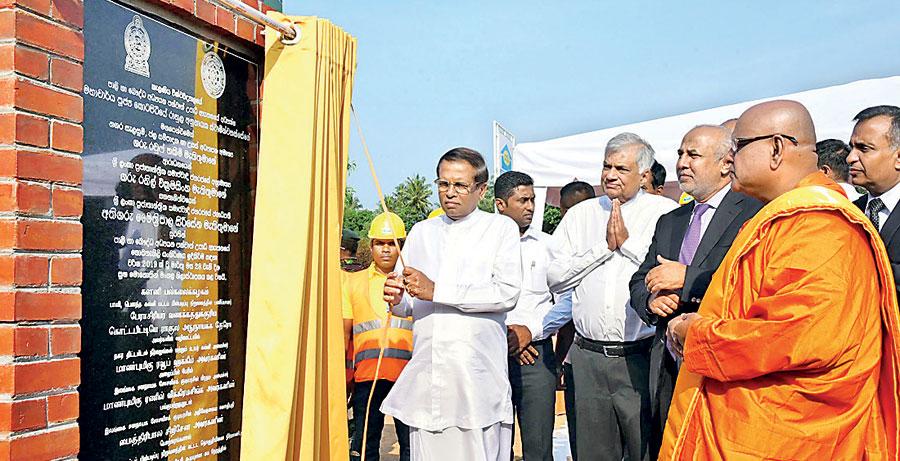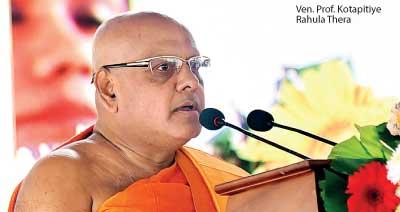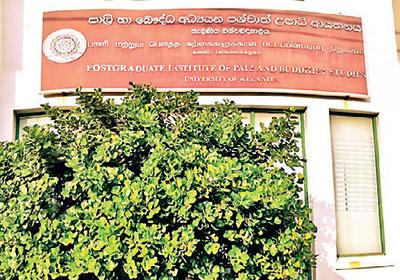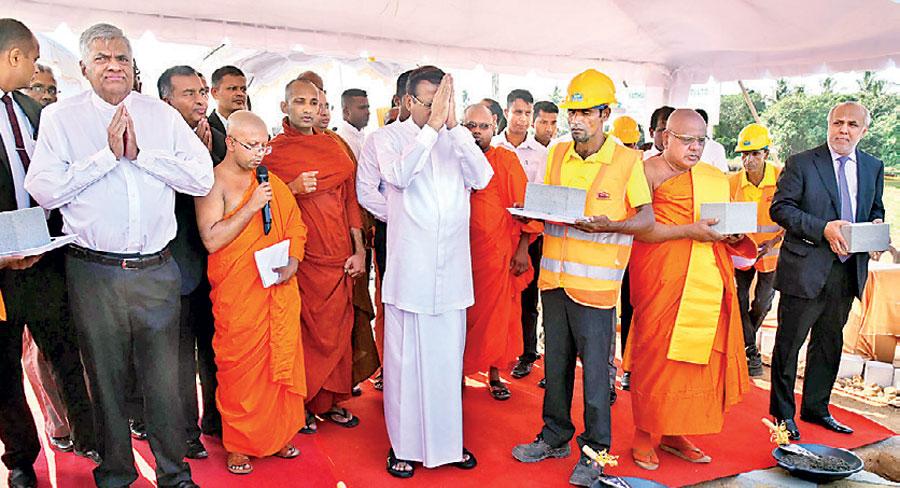01 Apr 2019 - {{hitsCtrl.values.hits}}

Forty-four years after its inception the Postgraduate Institute of Pali and Buddhist Studies (PGIPBS) of the Kelaniya University has finally got land to build its own premises thanks to the hard work of its present director, Venerable Professor Kotapitiye Rahula Thera.
On the March 28, President Maithripala Siriesena laid the foundation stone for this project along with Prime Minister Ranil Wickremesinghe and Higher Education Minister Rauff Hakeem at Manelgama in Kelaniya.
It indeed speaks volumes of the sorry state of affairs that the local institute to accommodate the largest number of foreign students, the PGIPBS had functioned in rented places for more than four decades. 
So far, tens of thousands of graduates, both local and foreign, have passed out from the institute. Among them were monks and nuns from countries like Burma, Bangladesh, China, Korea, Indonesia and Malaysia.
Currently, the institute is housed at Dutugemunu Street in Kohuwela.
The present director Venerable Professor Kotapitiye Rahula Anunayake Thera have been meeting dozens of government officials and was making mammoth efforts for the past few years to secure a permanent place to house the institute. Finally, he managed to have his wish fulfilled with the approval coming his way to set it up in Manelgama, Kelaniya.
The Postgraduate Institute of Pali and Buddhist Studies (PGIPBS) of the University of Kelaniya was known as the Vidyalankara Institute of Buddhist Studies since its inception on November 23, 1975 until December 30, 1979.
Its present name, status, and structure is derived from the Postgraduate Institute of Pali and Buddhist Studies Ordinance No. 8 of 1979, which came into operation on 1st January 1980. In terms of this Ordinance, the Institute functions as an organization within the University of Kelaniya, under the direction and control of a Board of Management (executive authority) constituted to represent both academic and administrative personnel.
"The research function includes supervision of PhD and MPhil theses as well as research undertaken by the academic staff of the PGIPBS and external scholars"
All matters relating to curriculum development, courses of study, teaching, and research and the conduct of examinations are under the purview of the Faculty Board (academic authority) subject to the approval of the Board of Management and the University Senate.
The Postgraduate Institute of Pali and Buddhist Studies (PGIPBS) has three Departments of Study - Buddhist Sources, Buddhist Thought, and Buddhist Culture. 
Teaching and supervision are managed by a panel of lecturers and academic supervisors drawn mainly from the faculties of Humanities and Social Sciences of local and foreign universities. Course work and research can be pursued either in Sinhala or in English and the Institute welcomes both local and foreign students.
The Institute provides instructions for the courses of study outlined in the Master’s Degree, Postgraduate diploma, certificate and short term programs. It also guides any casual students, especially from foreign countries, who may seek assistance in projects of their own.
The research function includes supervision of PhD and MPhil theses as well as research undertaken by the academic staff of the PGIPBS and external scholars.
Partnering with several foreign universities the PGIPBS has also extended its study programmes to a few overseas institutes as well. The Buddha Dharma Centre of Hong Kong Limited, Hong Kong, The Buddhist Library Graduate School of Singapore, Singapore and China’s Buddhist Academy of Mt. Putuo, China, conduct their programmes in their respective universities.
A slew of outstanding Buddhist and Pali scholars have held the director post of
the institute.
They included founding director Venerable Dr Havanpola Rathanasara (1975-1979), Professor L. P. N. Perera (1979-1984), Professor Jothiya Dheerasekare later known as Venerable Professor Dhammavihari, (1984-1990), Professor Y. Karunadasa (1991-2000), Professor Thilak Kariyawasam (2000-2003), Professor Asanga Thilakaratne (2003-2007) and Professor Sumanapala Galmangoda (2007-2013).

Pix by Nisal Baduge
29 Nov 2024 8 hours ago
29 Nov 2024 9 hours ago
29 Nov 2024 29 Nov 2024
29 Nov 2024 29 Nov 2024
29 Nov 2024 29 Nov 2024